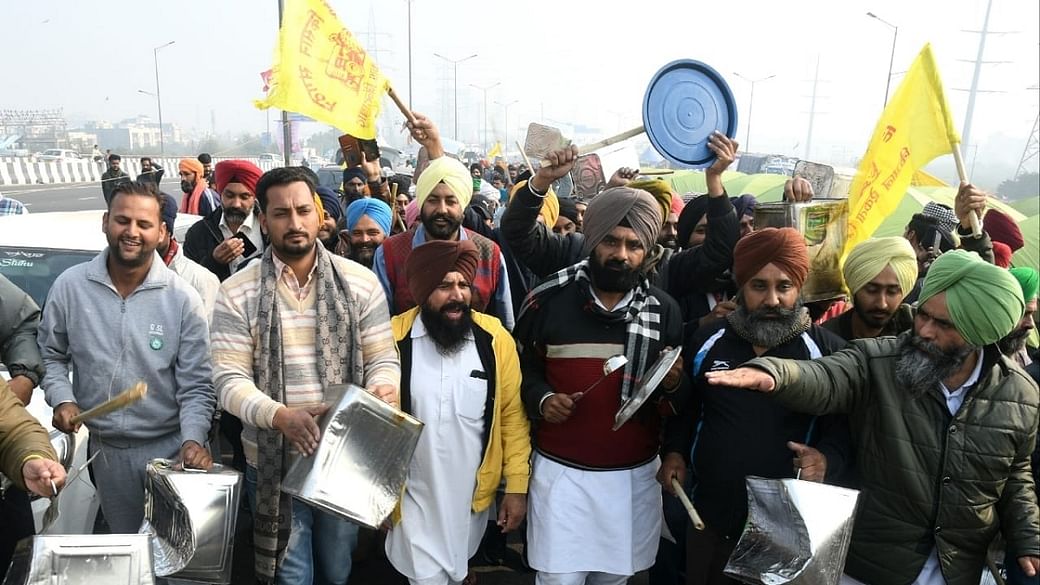While Prime Minister Narendra Modi was addressing the people of the country on Sunday through his monthly radio programme ‘Mann Ki Baat’, the protesting farmers opposed it by beating ‘thalis’ (plates) and clapping their hands.
Haryana farmer leader Gurnam Singh Chaduni appealed to the Prime Minister to listen to the “Mann ki Baat” of farmers and voices of other people as well. Gurnam Singh is the Haryana state President of the Bharatiya Kisan Union (BKU) and is one of the prominent leaders leading the farmer agitation.
Opposing the ‘Mann Ki Baat’ radio programme by beating a ‘thali’ at the Makdoli toll plaza in the Rohtak district of Haryana, Chaduni while addressing Modi said, “We are not convinced by your ‘Mann ki Baat’ address. You speak your mind but do not listen to other people’s voices.”
The farmer agitation entered its 32nd day on Sunday. Since November 26, the protesting farmers have been camping at the Singhu, Tikri and Ghazipur borders with the adjoining national capital. The protesting farmers are marching on the streets in protest against the three farm laws implemented by the central government, saying that these laws are not in the interest of the farmers, while the Centre has said opposition parties are misleading the farmers.
Several rounds of negotiations have been held to resolve the ongoing deadlock between the farmers and the central government but both sides have failed to reach a final consensus over the issue. The next round of talks between the two sides is set for December 29.
On the request of the government, a letter was sent on Saturday by the leaders of 40 farmer organisations protesting under the banner of the ‘Samyukta Kisan Morcha’ citing the date and time of the next round of talks, with four major demands for the talks.
These demands by the farmer leaders include: the procedures to be followed to repeal the three central farm laws; the procedure and provisions for legal guarantee for procurement on profitable Minimum Support Price (MSP) as suggested by the National Farmers Commission for all farmers and agricultural commodities; amendments to the Commission for Air Quality Management in National Capital Region and Adjoining Areas Ordinance, 2020, which are necessary to exclude farmers from the penal provisions of the Ordinance; and necessary changes in the draft of Electricity Amendment Bill, 2020, to protect the interests of farmers.
When IANS asked farmer leader Darshanpal whether the next round of talks would be held on these four core conditions, he said these are not the conditions but the agenda of the talks which he has proposed only on the request of the central government.
The agitating farmer organisations are seeking a repeal of the Farmers Produce Trade and Commerce (Production and Facilitation) Act, 2020; Farmers (Empowerment and Protection) Agreement on Price Assurance and Farm Services Act, 2020; and Essential Commodities (Amendment) Act, 2020; implemented in September by the central government.
